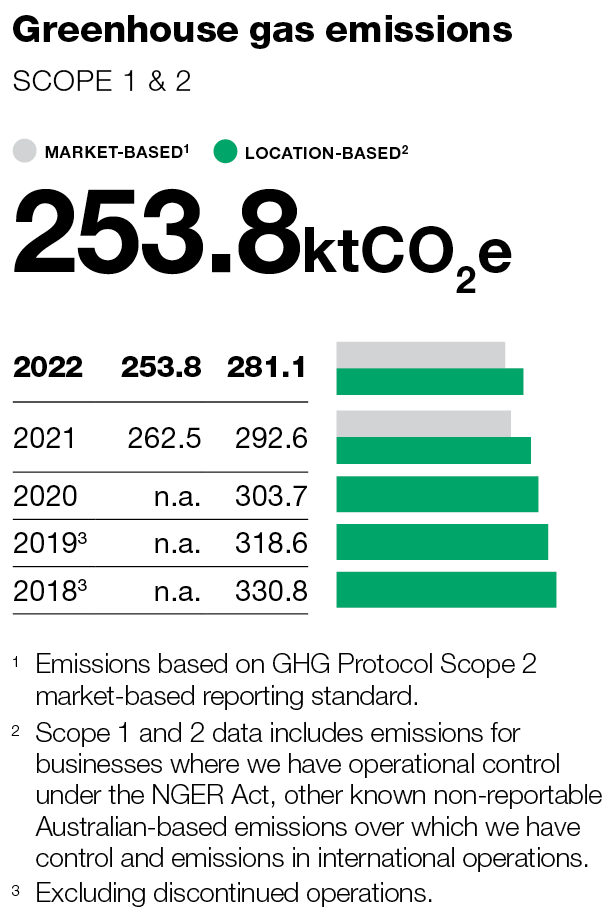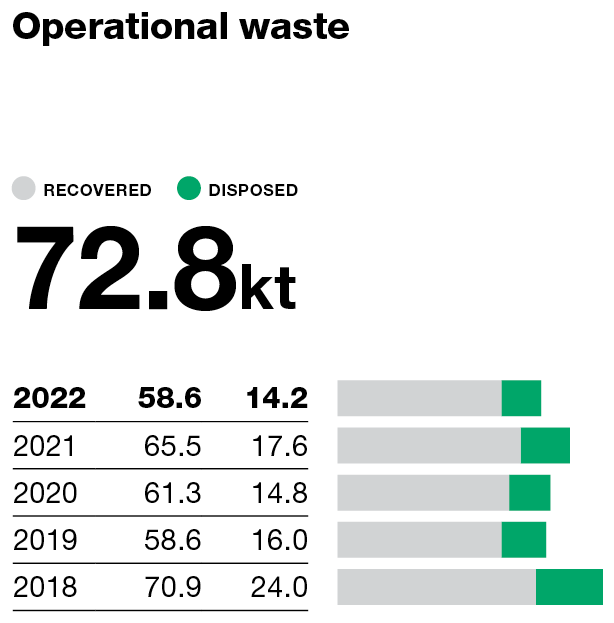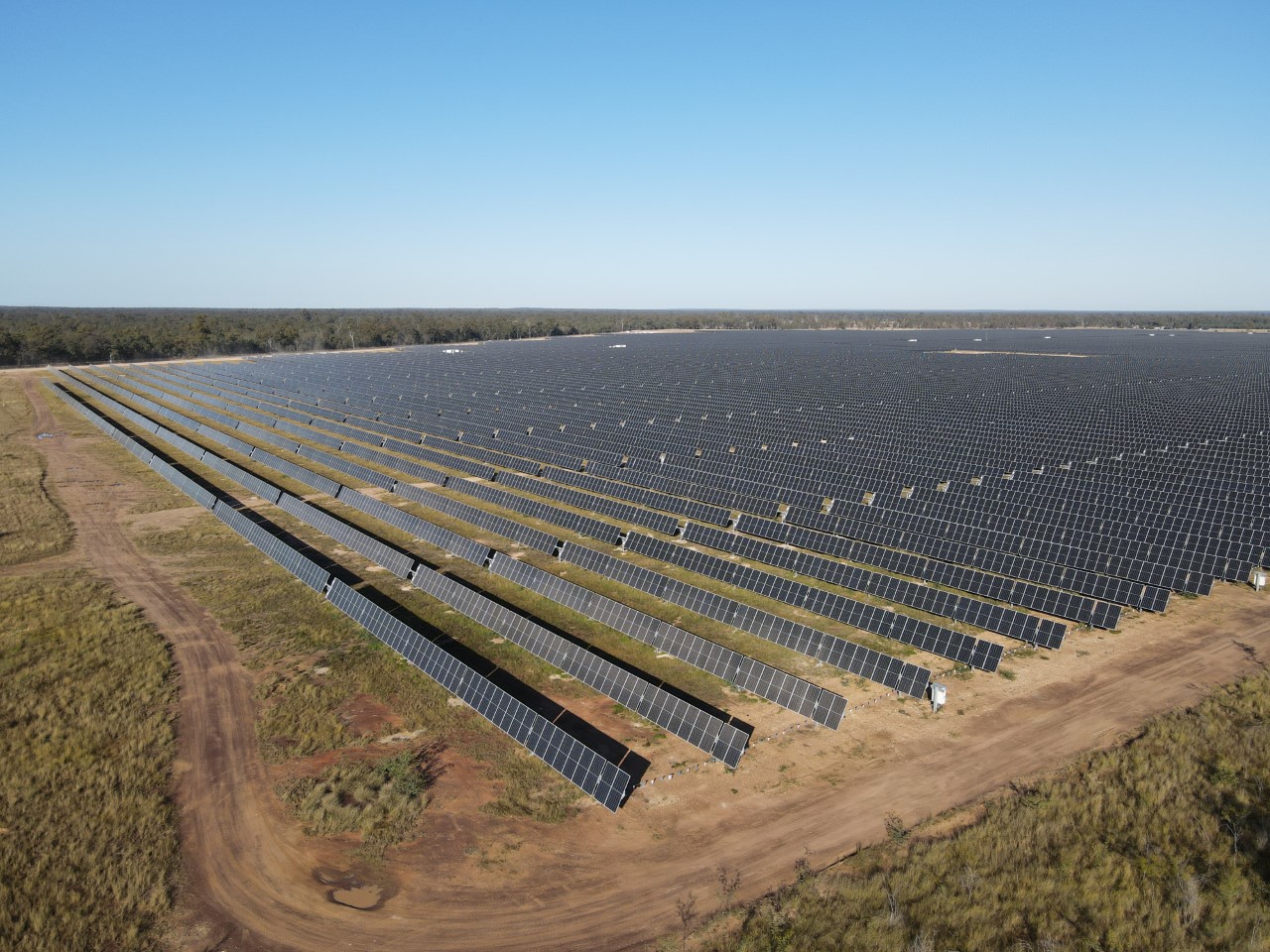
Kmart Group - Sustainable operations
As a large retailer with a significant operational footprint, Kmart Group has a responsibility to minimise the environmental impact of its retail stores and distribution networks.
Energy and emissions
In the 2022 financial year, Kmart Group increased electricity use by 0.4 per cent per-square-metre of its stores’ gross footprint. This increase is attributed to warmer weather conditions and a 9.5 per cent increase in store operating hours following reduced COVID-19 restrictions in the prior year. The efficiency of stores' energy use per-square-metre has improved 1.7 percent year on year.
During the year, Kmart Group secured a renewable energy contract through to 2030 for 58 stores in Queensland, which represents 18 per cent of the group’s total energy requirements. See more information in the CleanCo case study.
Kmart Group’s focus over the next year will be on energy-efficiency activities related to lighting, out-of-hours energy use, building automation and Power Factor Correction. These opportunities will drive efficiency and cost reduction for the stores in conjunction with renewable energy procurement strategies to achieve 100 per cent renewable electricity by 2025 and to net zero Scope 1 and 2 emissions by 2030.
To address Scope 3 emissions related to activities from assets not owned or controlled by Kmart Group and its value chain, a roadmap was greatly accelerated by the mapping of all material categories during the year. The comprehensive analysis of Kmart Group’s Scope 3 emissions profile has enabled prioritisation of identified hotspots, and forecasting of emissions and reduction options to demonstrate future opportunities including through the Kmart Group sustainable materials strategy. See more information here on the Kmart Group's sustainable products.
Key findings of the Scope 3 analysis include: the emissions associated with customer use of sold electrical appliances represent 68 per cent of total Scope 3 emissions; materials in clothing and soft-home represent 10 per cent; and manufacturing processes amount to 22 per cent.
Following this year’s Taskforce on Climate-Related Financial Disclosures process, these Scope 3 findings will be considered by Kmart Group and assist the development of a position and program of activity over coming years.
Waste and recycling
Waste diversion from stores and distribution centres across Kmart Group improved from 79 per cent to 80 per cent this financial year. During the period, a waste and recycling dashboard has been developed to allow Kmart Group stores, regions and states to monitor and compare their waste generation, diversion and bin density. This will be implemented next financial year across all Kmart Group sites to help improve cost control, reduce waste and increase recycling and waste diversion.


